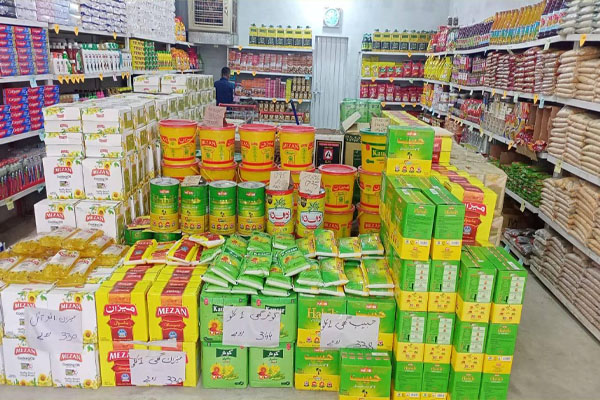This is an interesting case of uses and abuses of concept of Gaurdianship.
-----------------------------------------------------------------
Manipulating the system
Sabria S. Jawhar
Despite laws to protect women in Saudi Arabia, there remain instances in rural areas where families manipulate the system with success to further their own personal prejudices.
A 25-year-old Saudi woman filed a complaint in the court alleging her father was committing “adhel,” an Islamic term in which a man uses his guardianship authority against a woman’s will to prevent her marriage to a good suitor.
With the help of her brother and mother, the woman proved in court that her father had committed “adhel.” Her father had abandoned his daughter and her mother 20 years ago.
The court ruled in the woman’s favor and issued a document that stated she was the victim of “adhel” and that guardianship duties were transferred to her brother. The brother permitted his sister to marry the man she wanted.
But the woman’s paternal uncles objected to the marriage and crashed the wedding party in an attempt to prevent the woman from leaving with her husband. The brother sneaked the woman and her new husband out of the wedding hall. The couple began their new life. The husband is in the Saudi Army and is serving his country in the war in Yemen. Before he left for his assignment, his wife became pregnant.
While the husband was away at war and the woman was eight months pregnant, the father’s family sought a divorce in a different court with a judge who was a member of the same tribe as the father's tribe. Taking advantage of the husband’s absence, the father’s family convinced the judge to divorce the couple. A divorce decree was issued.
Race inequality is said to have been the determining factor for the divorce, although the judge never considered the baby about to be born who now has the blood of both his mother and father running through its veins.
I have great confidence in the future of our judicial system, but the lack of legal codification is doing significant harm to families in which tribes can manipulate the system to achieve their own agenda. Further harm is committed against Saudi society because in this case the husband and wife love each other, are having a child together, and the divorce was granted when the husband was absent and not represented in court.
In a video statement released by the woman, she pleaded for help to keep her marriage intact and to protect her unborn child. Fully covered and clutching her husband’s jacket as she spoke, it’s clear the woman is devout in her faith, truly loves her husband and her baby, and deserves to have her life returned to her.
There is no doubt that if her plea reaches the proper authorities, they will intervene and nullify the divorce. But in the meantime she faces not only giving birth to a child without a husband, but also is exposed to danger because she is an unmarried mother subjected to the whims of a vengeful family.
Saudis must consider whether this incident means that every single marriage contract approved by the court can be overturned based on personal interests. Divorce in Islam is the least liked among the permissible things by Allah, yet tribal prejudice and loyalties appear to take precedence over religion
http://www.arabnews.com/columns/news/908661
-----------------------------------------------------------------
Manipulating the system
Sabria S. Jawhar
Despite laws to protect women in Saudi Arabia, there remain instances in rural areas where families manipulate the system with success to further their own personal prejudices.
A 25-year-old Saudi woman filed a complaint in the court alleging her father was committing “adhel,” an Islamic term in which a man uses his guardianship authority against a woman’s will to prevent her marriage to a good suitor.
With the help of her brother and mother, the woman proved in court that her father had committed “adhel.” Her father had abandoned his daughter and her mother 20 years ago.
The court ruled in the woman’s favor and issued a document that stated she was the victim of “adhel” and that guardianship duties were transferred to her brother. The brother permitted his sister to marry the man she wanted.
But the woman’s paternal uncles objected to the marriage and crashed the wedding party in an attempt to prevent the woman from leaving with her husband. The brother sneaked the woman and her new husband out of the wedding hall. The couple began their new life. The husband is in the Saudi Army and is serving his country in the war in Yemen. Before he left for his assignment, his wife became pregnant.
While the husband was away at war and the woman was eight months pregnant, the father’s family sought a divorce in a different court with a judge who was a member of the same tribe as the father's tribe. Taking advantage of the husband’s absence, the father’s family convinced the judge to divorce the couple. A divorce decree was issued.
Race inequality is said to have been the determining factor for the divorce, although the judge never considered the baby about to be born who now has the blood of both his mother and father running through its veins.
I have great confidence in the future of our judicial system, but the lack of legal codification is doing significant harm to families in which tribes can manipulate the system to achieve their own agenda. Further harm is committed against Saudi society because in this case the husband and wife love each other, are having a child together, and the divorce was granted when the husband was absent and not represented in court.
In a video statement released by the woman, she pleaded for help to keep her marriage intact and to protect her unborn child. Fully covered and clutching her husband’s jacket as she spoke, it’s clear the woman is devout in her faith, truly loves her husband and her baby, and deserves to have her life returned to her.
There is no doubt that if her plea reaches the proper authorities, they will intervene and nullify the divorce. But in the meantime she faces not only giving birth to a child without a husband, but also is exposed to danger because she is an unmarried mother subjected to the whims of a vengeful family.
Saudis must consider whether this incident means that every single marriage contract approved by the court can be overturned based on personal interests. Divorce in Islam is the least liked among the permissible things by Allah, yet tribal prejudice and loyalties appear to take precedence over religion
http://www.arabnews.com/columns/news/908661
Last edited by a moderator:

























